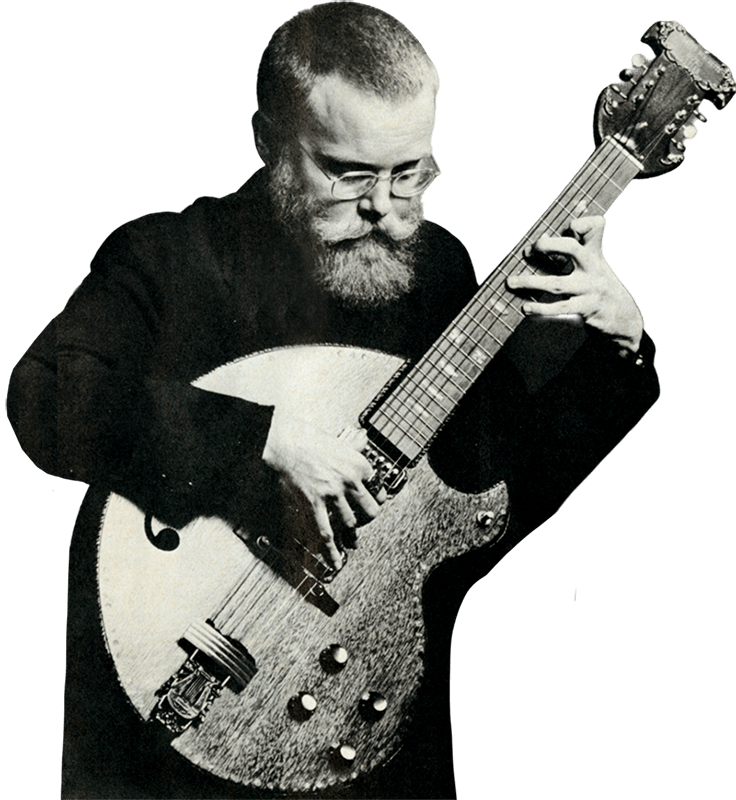
Private Press, Master Wilburn Burchette, and the Allure of the Enigmatic
For a while now, I’ve wanted to ruminate on why private press records have such an allure in this day and age. There are obvious charms to private press records for a record collector, such as scarcity, uniqueness, and the sense that when you buy or listen to a private press record, you are unlocking something that was, or is, in large part unknown and unheralded. A Reddit user, TheJoelGoodson, put it clear and succinctly, “Private press records have always fascinated me. No major labels, no focus groups, no A&R reps – just a budget to independently press a small run of LPs and some DIY spirit. What they may lack in technical proficiency they make up for in earnestness.”
The thing is, reissue labels such as Numero hold the power to catapult the lost figures of private press into icons of independent music. What I believe people yearn for and find in private press records, whether through original copies or reissues, is the enigmatic. Private press albums often featured musicians who were equally as private as individuals. It is almost necessary for musicians working today to present themselves on social media, to break the fourth wall between listener and artist so that the audience catches a glimpse of the people on the other side, or at least their projected image. The mystery of who an artist is — what they look like, how they act, what motivates them — is often exposed, unless initial efforts are made to conceal it. Private press records are fascinating because they frequently illuminate individuals who kept themselves from the public eye, from standard industry practices, and allowed the music and image they crafted to speak for itself. With many private press musicians, we’re always left to wonder exactly what they were like outside of the music on the record.
There have been various private press records and musicians over the past few years that have planted these ideas in my head such as Ernest Hood or the odd world of private press new age records. What pushed me forward to discuss this topic for this blog entry was my observations on how I reacted to a Stranded Records email newsletter about the guitarist Master Wilburn Burchette.

Email dated May 29th. I was flipping through the newsletters I receive from labels and shops, when Stranded’s email about Master Wilburn Burchette caught my eye. His name probably struck me first, idiosyncratic and original. The photo featured him fingerpicking an unusually shaped guitar. The write-up described him as a “mail-order mystic,” a guitarist turned psychic who burned the remainder of his unsold stock when he changed career paths. It’s the kind of story that pens itself, that labels crave and writers love to sink their teeth into. I took a screenshot of the email to remind myself later that Burchette was a possible blog topic.
Upon diving into further research, I shouldn’t have been surprised to find that there was not a lot of information out there about Master Wilburn Burchette. The most prominent resource was an interview he gave in 2018 for Numero’s publication, Periodical Numerical, which was reprinted to their blog last year in tribute to his passing. In the interview, Burchette swings from topics ranging from guitar building, his love for creating esoteric ads for his music in magazines such as Gnostica News and Beyond Reality, and his observations on the ultimate accuracy of Orwell’s 1984. Most notably, he told Douglas Mcgowan of the Numero group years ago that he rarely gave interviews to “preserve the mystery.” While Burchette is not the only artist to ever have such a sentiment, his approach is maybe shrinking.
Of course I loved reading this interview with Master Wilburn Burchette, and I enjoyed listening through his solo acoustic guitar records that gave off a cosmic, psychedelic flair. But what ultimately fascinated me most was that initial response I had to that Stranded newsletter. That immediate sense of intrigue stuck with me because it was strong and palpable. What was it about Burchette, with his eccentric guitar and para-psychological allure that drew me in? The cause was exactly what he set out to do in the 1970s, “preserving the mystery.” He was enigmatic. And he still is. As I said, there isn’t ample information floating around on the Internet about him, although maybe I’d find more luck in books and old magazines. But even his old magazine ads leave a lot to curiosity about Burchette himself, and even how the music sounds. His ad for his record Mind Storm, which combined pink noise with his compositions that were “suitable for psychic exploration and experimentation,” includes nothing of who Burchette is besides the name.
A now deleted user on Reddit posted several years ago, “As one might expect, many of [private press] records are exceptionally strange. However, it’s this strangeness that elevates the music in ways that traditional recordings might not have been able to capture….The lack of information that usually surrounds the record only adds to its flung-out-of-space aesthetic.” This person perfectly illustrates the uncanny nature of private press records and musicians, that feeling that all of it materialized out of dusty, thin air. I would take a guess that private press records are most commonly associated with the seventies and eighties, when vinyl production probably became more accessible, but before the rise of home recording cassette culture (although I imagine there is a lot of overlap between these approaches). What music do we have today that conveys the enigmatic in the same way that private press does? Is it possible to create such a mysterious artistic identity with the technology, and subsequent industry expectations, we have at our disposal? Over the years at Torn Light, we’ve received esoteric CDrs and tapes that betray little about who crafted them and what their goals are, and we’ll sometimes release them, all the while preserving their anonymity. So yes, I do believe it is possible to still capture the enigmatic today, albeit with an increased care to conceal oneself and a dedication to the cause of “preserving the mystery.”
– Hannah Blanchette
June 19, 2024 | Blog